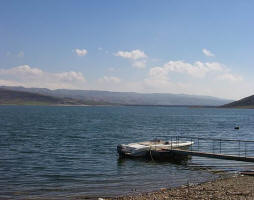 Countering 'Waste Electrical and Electronic Equipment' Illegal Trade
Countering 'Waste Electrical and Electronic Equipment' Illegal Trade
The Countering WEEE Illegal Trade (CWIT) Project has received funding from the European Community’s Seventh Framework Programme (FP7/2007-2013) under Grant Agreement No. 312605.
FP7 is the short name for the Seventh Framework Programme for Research and Technological Development. This is the EU’s main instrument for funding research in Europe and it runs from 2007-2013. FP7 is also designed to respond to Europe’s employment needs, competitiveness and quality of life.
An international consortium of seven organisations has launched a new project, ‘Countering WEEE Illegal Trade’ (CWIT), co-ordinated by Interpol (International Criminal Police Organisation). The project will provide a set of recommendations to the European Commission and law enforcement authorities that will assist them in countering the illegal trade of WEEE (Waste Electrical and Electronic Equipment, or ‘e-waste’). Funded by the European Union’s 7th Framework Program, this two-year security research project brings together experts skilled in the fields of e-waste analysis, crime analysis, supply chain security and database management.
Only about 3 million tons of the estimated total of 8 million tons of WEEE was officially collected, treated and reported to authorities across Europe in 2010. E-waste contains materials such as gold, copper and palladium which make it very valuable on the black market; attracting not only illegal single operators but also organised crime groups.
However, e-waste also contains hazardous substances such as mercury and cadmium. Therefore illegal e-waste handling, often in poorer countries, leads to huge health issues and environmental pollution. At the same time, the European Union is losing a vast amount of rare earth metals and other important minerals due to increasing illicit activities, poor compliance rates, and limited enforcement activities in e-waste.
These issues call for increased attention and enhanced enforcement in the context of WEEE trade, transport and treatment. The CWIT project has been established to identify the policy, regulatory, procedural and technical gaps as observed in today’s business environment, and to suggest tangible improvements.
The CWIT consortium is composed of partners that have a great deal of expertise on the WEEE area, crime analysis and the management of large databases, it comprises Interpol, WEEE Forum aisbl, United Nations University (UNU), Zanasi & Partners (Z&P), Compliance and Risks (C2P), Cross-Border Research Association (CBRA) and United Nations Interregional Crime and Justice Research Institute (UNICRI).
--
The CWIT Project brings together an expert team with extensive knowledge and technical capabilities in the fields of WEEE, crime analysis and the management of databases of regulatory information.
| Name | Short name | Website |
|---|---|---|
| Compliance & Risks | C&R | www.complianceandrisks.com |
| Cross-Border Research Association | CBRA | www.cross-border.org |
| International Criminal Police Organisation | INTERPOL | www.interpol.int |
| United Nations Interregional Crime and Justice Research Institute | UNICRI | www.unicri.it |
| United Nations University | UNU | www.unu.edu |
| Waste of Electrical and Electronic Equipment Forum AISBL | WEEE Forum | www.weee-forum.org |
| Zanasi & Partners | Z&P | www.zanasi-alessandro.eu |
| Project number | 312605 | ||
|---|---|---|---|
| Subject(s) | ANALYSIS AND TESTS , CHARACTERISTICAL PARAMETERS OF WATERS AND SLUDGES , ENERGY , FINANCE-ECONOMY , HEALTH - HYGIENE - PATHOGENIC MICROORGANISM , INDUSTRY , INFRASTRUCTURES , MEASUREMENTS AND INSTRUMENTATION , NATURAL MEDIUM , PREVENTION AND NUISANCES POLLUTION , RIGHT , RISKS AND CLIMATOLOGY | ||
| Acronym | CWIT | ||
| Geographical coverage | Italy | ||
| Budget (in €) | 0 | ||
| Programme | EU-FP7 | ||
| Web site | http://www.cwitproject.eu/ | ||
| Objectives | The project will collect, study, and identify gaps in the current legislation in place at the International and European level such as the European Commission Directives on hazardous substances in products placed on the market in Europe and their treatment:
|
||
| Results | In addition, the CWIT project, through intensive data collection, information gathering process, and an intelligence-based approach, will:
The CWIT project plans to develop a set of recommendations:
Finally the CWIT project will ensure a multi-layer platform for exchange of information among the end-users consisting of law enforcement authorities, customs organisations, policy makers, etc. enabling them to better prevent and respond to the illegal trade of WEEE. |
||
| Period | 01/01/2013 | ||
 you are not logged in
you are not logged in





